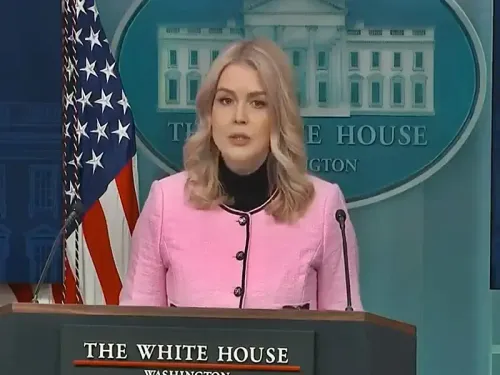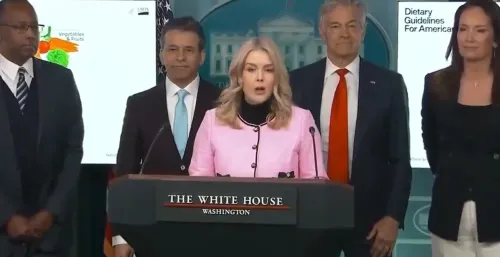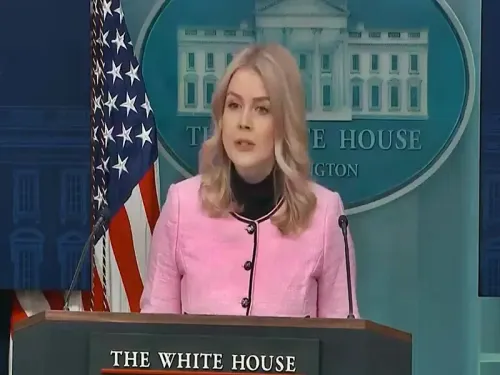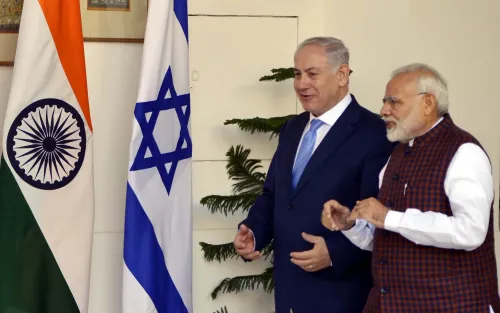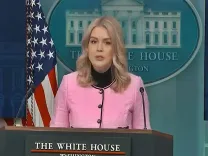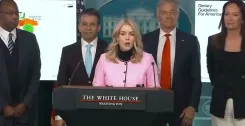Is the US Shadow Threatening Pakistan’s Relationship with China?
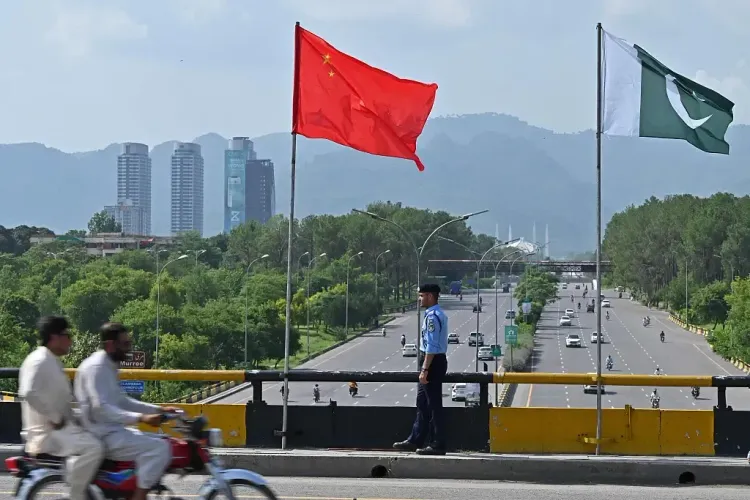
Synopsis
Key Takeaways
- Pakistan is increasingly dependent on China amidst shifting global dynamics.
- The CPEC is crucial but faces various vulnerabilities.
- Pakistan's economic collaborations with Central Asia have not materialized.
- Balancing relations with the US and China is becoming more challenging.
- India's growing influence in the East could further isolate Pakistan.
New Delhi, Sept 14 (NationPress) Pakistan, once aspiring to lead the Muslim world and connect South and Central Asia, has now found itself increasingly reliant on China. This relationship may become unstable as Islamabad navigates the tricky waters of strengthening its ties with the US while maintaining its connections with Beijing.
Moreover, the China-Pakistan Economic Corridor (CPEC) is not originally conceived by Islamabad, but is part of Beijing's Belt and Road Initiative, which primarily serves China's strategic interests, as noted in an article from Pakistan Today.
In the Middle East, a significant shift in the diplomatic landscape is underway. Nations are moving towards normalization with Israel under the Abraham Accords, altering longstanding alliances and potentially changing the balance of power within the Muslim world, as discussed in the article. Even close partners like Kazakhstan, which acquires locally assembled JF-17 fighter jets, and Turkey are adopting more adaptable stances towards Tel Aviv. Additionally, Afghanistan remains a precarious trade and security partner, while Iran faces increasing international isolation and has experienced sporadic military conflicts with Pakistan, including last year’s cross-border clashes.
The article further asserts that Islamabad has struggled to implement economic collaborations with Central Asian nations like Kyrgyzstan, Tajikistan, and Uzbekistan.
“This situation leaves Pakistan with a singular, steadfast ally: China. While the partnership with Beijing is crucial to our economic and security frameworks, it is not exempt from the fluctuations of global politics. The challenging balancing act Islamabad must perform between enhancing ties with the US and upholding trust with China is becoming increasingly fragile. Even the much-lauded CPEC, now transitioning into its second phase, faces threats from regional instability, evolving geopolitical dynamics, and global power rivalry,” the article laments.
It also points out that Islamabad’s recent exploration of crypto-mining collaborations with the US appears more like a political gesture than a genuine economic shift. “Our history of announcing ambitious initiatives without the necessary institutional capacity or long-term commitment indicates that such projects are more likely to fizzle out than come to fruition.”
On a strategic level, Pakistan’s scope for action is diminishing at a troubling rate. The country is not included in BRICS, the emerging economic bloc that now represents a substantial portion of global GDP and is increasingly influencing trade and development financing beyond Western frameworks. India’s Act East Policy, initiated in 2012, has strengthened its ties with ASEAN economies and enhanced security partnerships throughout East Asia, effectively sidelining Pakistan from new regional supply chains.
Should New Delhi modify its stance towards the Indian Ocean Rim Association, Pakistan’s maritime trade routes could encounter further strategic limitations, tightening the noose around our sea-based economic lifelines, the article concludes.


